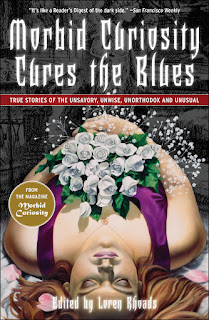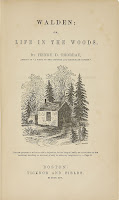Sometimes you just can't do it alone. Writer Loren Rhoads found her answer in a professional organizer.
Paperwork, Be Gone!
by Loren RhoadsFor 10 years, I edited Morbid Curiosity magazine. It collected true first-person essays, which I published annually in the spring. The last issue appeared in May 2006, after which I collected my favorite essays into an anthology published by Scribner in 2009.
During the magazine years, I kept a paper copy of every draft of every submission I’d ever received, whether I eventually published it or not. I kept every web page I’d printed out as research. I kept reams of correspondence, particularly from difficult would-be contributors and/or all the prisoners who’d ever gotten in touch. I kept copies of every invoice I sent and resent to the deadbeats who wouldn’t pay for the magazines they’d ordered for their shops or distribution schemes. Most of the paperwork was in rough order, but there were duplicates and redundancies and stuff I just didn’t need any more.
It felt like, to use the vernacular, an epic heap of fail. I told myself that I couldn’t tackle it, because there was no way to overcome it by pecking at it an hour or two at a time, as watching my daughter allowed. The real truth was that I didn’t want to wallow in all the unhappiness, bad memories, and feelings of inadequacy the paperwork represented. My magazine was a success, in that it was beloved and developed its own cult. I just wasn’t as successful at the business of publishing it. I naively wanted to believe the best of distributors and shop owners, especially if they were enthusiastic and complimentary. I didn’t want to look at the record of my struggles.
Luckily, a friend of mine started a business as a professional organizer. I hired her to come by one day to help me master this disaster. It was the best money I’ve ever spent.
On that magical day, Lilah went through all seven boxes of papers, as well as the four jammed file drawers, without judging, reading anything, or becoming involved in any of it. She made piles for me: one for each issue, with reviews, ephemera from the readings, photographs, and fan letters. I decided to pull out the best parts of those piles and make a scrapbook, so I could look at my triumphs when my spirits needed a boost.
 She also made piles of each year’s receipts and invoices. Filing that stuff away was the best experience of my life. The unpaid invoices went into the tax paperwork, never to be looked at again. When the IRS’s suggested length of time passes, I’m going to pitch those files in the bin without even opening them.
She also made piles of each year’s receipts and invoices. Filing that stuff away was the best experience of my life. The unpaid invoices went into the tax paperwork, never to be looked at again. When the IRS’s suggested length of time passes, I’m going to pitch those files in the bin without even opening them. Lilah made a pile of edited manuscripts, any hard copy illustrations that the artists hadn’t wanted back, and advertisements for each project. Among that stuff were the rejected manuscripts or things I’d started to edit before the contributors became too challenging to deal with. I simply threw those things away. Now I can forget the people who were mean to me when I dared to edit their deathless prose. Every time I recycled a sheaf of papers, laughter bubbled up out of my chest. I said over and over, “YOU are out of my life.”
In the five hours Lilah and I worked together, I managed to throw out three full boxes of paper. We whittled the keepers down to three boxes and a file drawer, along with two miscellaneous stacks that I needed to read more closely before recycling them.
Two weeks after the organizer came, I finished. My curbside recycling bin was crammed full two weeks in a row, but the purge has been very healing. I cannot believe the feeling of liberation in culling all this stuff.
In the end, I can forget the frustration and depression and anxiety that marred the triumphs of my publishing business. I only want to remember the good parts of running the press. I have thrown all the bad memories away.
I know it can be intimidating to turn your paperwork over to someone else to handle, but trust me, they will be working too fast to judge. Because there’s no emotional baggage for them, they can be efficient and ruthless. Unless you empower them to actually throw things out, you will still be able to make the final call and rescue anything you need to. However, once of the worst of the organization is done in macro-scale, the little decisions are easier to make. Throwing things away takes on a momentum of its own.
If you aren’t lucky enough to have a friend who is starting her own business, there are professional organizers who can be hired. More basic than that, you could hire a high school kid or trade organizational chores with a friend. Anyone who isn’t emotionally bound by your paperwork is an ally. Agree first what the payment will be, how long you will work, and when you will take breaks. Then pull up your recycling bin and get to work.
Loren Rhoads is the author of the space opera trilogy In the Shadow of the Templars. The Dangerous Type comes out on July 7, 2015, followed by Kill By Numbers in September, and No More Heroes in November. You can learn more about the series at http://lorenrhoads.com/writing/the-dangerous-type/ or Morbid Curiosity magazine at http://lorenrhoads.com/editing.





